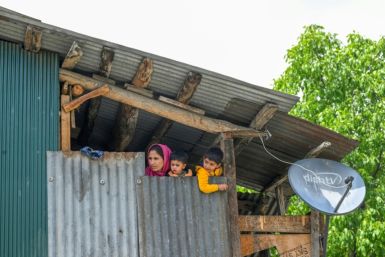Russia Plans To Send Man To The Moon By 2030
Russia has set forth an ambitious space plan to send cosmonauts to the moon and unmanned probes to Jupiter and Venus and build a network of research stations on Mars, all by 2030.
The blueprint was revealed in a leaked strategy document from Russia's space agency, Roskosmos, published in Kommersant, a business daily newspaper. The strategy document lays out the space agency's plans for the next 18 years, including a moon landing for cosmonauts.
"Conduct a demonstrative manned circumlunar test flight with the subsequent landing of cosmonauts on surface and their return to Earth," it reads.
According to the leaked document Russia will replace the Soyuz with the six-seater Angara craft by 2020 as the spaceship that launches Russian payloads. It will launch from the new Vostochny cosmodrome that is scheduled for completion in 2018. The Vostochny cosmodrome will replace the old Soviet Baikonur facility in Kazakhstan as the choice launch site.
Russia will send robots to the moon to collect samples by 2030. In addition to the planned moon landing, Roskosmos is planning to explore other planets in the solar system and perhaps a follow-up to the International Space Station.
The bold strategy is a sign of Russia's continued commitment to space exploration. The Soviet Union was the first country to send a man in orbit but eventually lost out to the U.S. when NASA successfully landed a man on the moon. Russia's space program has been in decline since then. It's Mars probe Phobos-Grunt had an immediate engine failure after launch and was stuck in orbit around Earth before eventually crashing back to the planet.
Yury Karash, a corresponding member of the Russian Academy of Cosmonautics, says Russia should focus on sending manned flights to Mars, the next plum goal of many space agencies. NASA has plans to send astronauts to Mars by 2030.
"Back in the 1960s the Soviet Union was competing head-to-head with the United States," he told The Telegraph. "But it is hard to find a better way to hurt Russian prestige and emphasise Russian technological backwardness than by sending cosmonauts to the Moon around 2030, 60 years after Apollo."






